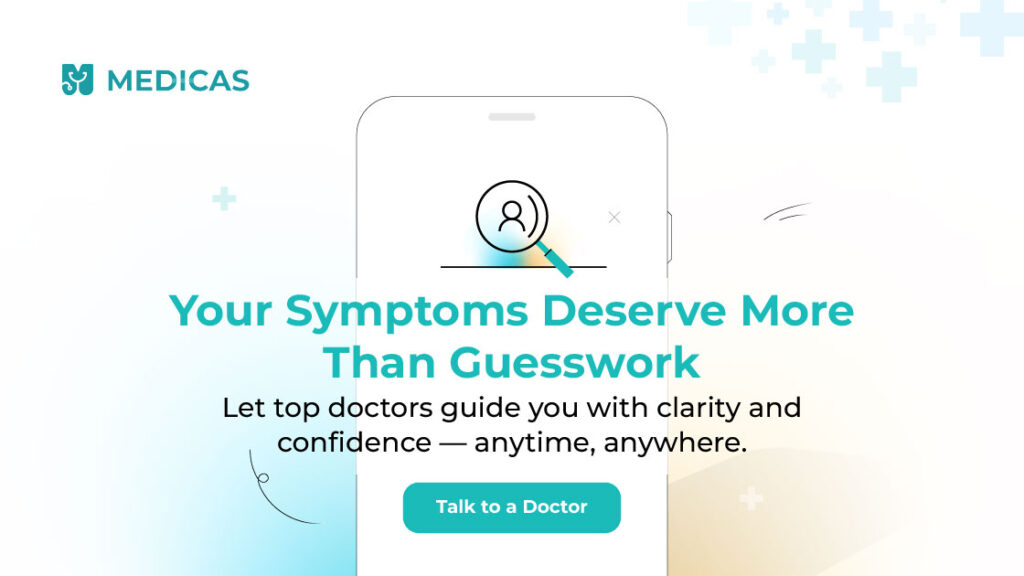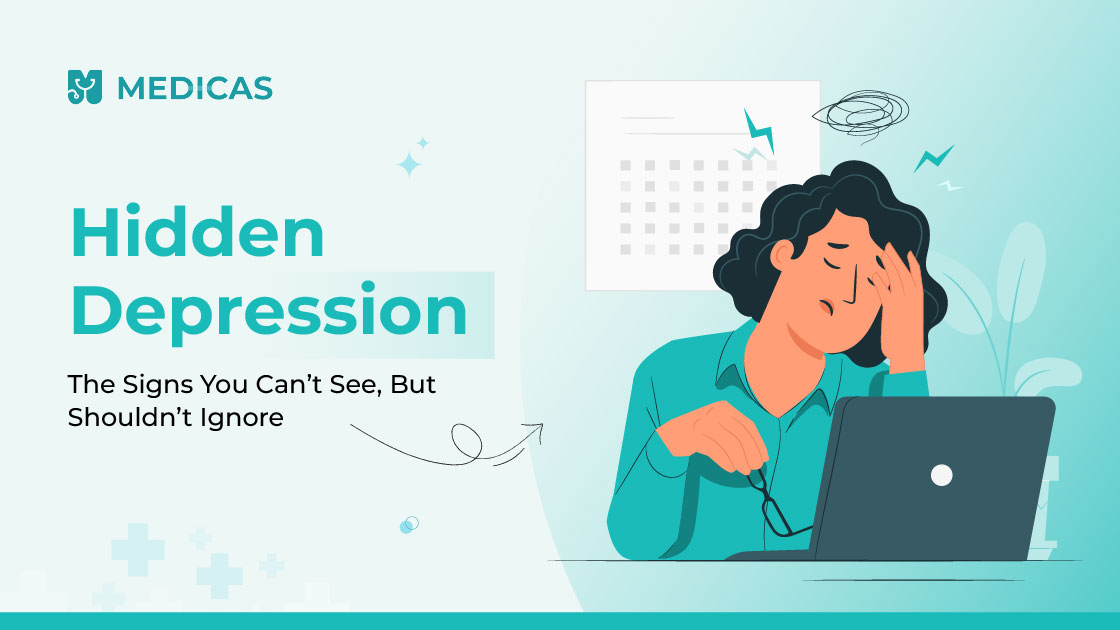Picture this: a colleague who always meets deadlines with a smile, a friend who juggles family and work effortlessly, or a loved one who never misses a chance to crack a joke. On the outside, they seem fine—perhaps even thriving. But behind closed doors, they’re wrestling with a quiet storm, a weight they’ve learned to carry in silence. This is the reality of hidden depression, a form of mental struggle that often slips under the radar.
As a psychologist, I’ve seen how high-functioning depression can cloak itself in competence and cheerfulness, leaving those who experience it—and those around them—unaware of the turmoil beneath. Raising mental health awareness about these subtle depression symptoms is crucial, because what we don’t see can still hurt deeply. In this blog, we’ll uncover the signs of hidden depression that often go unnoticed and explore ways to offer mental health support to ourselves and others.
What Is Hidden Depression?
Hidden depression, sometimes called high-functioning depression, is a condition where individuals experience persistent depressive feelings while maintaining an outward appearance of normalcy or success. Unlike the more visible forms of depression—marked by withdrawal, tearfulness, or inability to function—this type thrives in the shadows. People with hidden depression might excel at work, nurture relationships, or care for others, all while battling internalised depression they rarely voice.
What sets it apart? It’s not the stereotypical image of someone bedridden or openly despairing. Instead, it often affects professionals, caregivers, or those who seem to “have it all together.” They push through their days, masking depression symptoms with productivity or a forced smile—a silent resilience that makes it both remarkable and heartbreaking.
Why Is It So Hard to Spot Hidden Depression Symptoms?
Spotting hidden depression feels like chasing a whisper in a crowded room. Several barriers keep it out of sight:
- Stigma Around Mental Illness: Society often equates depression with weakness, pushing individuals to hide their struggles to avoid judgment.
- Pressure to Perform: Whether it’s a demanding job or a role as the “strong one” in the family, the need to appear capable can bury signs of depression.
- Misconceptions: Many assume depression always looks like sadness or dysfunction, overlooking those who function well despite emotional exhaustion.
As a psychologist, I’ve met countless individuals who fear admitting their pain—not because they don’t feel it, but because they don’t fit the mold of what they think depression “should” be. This misunderstanding keeps mental health awareness from reaching those who need it most.
Signs of Hidden Depression Most People Miss
The signs of depression in hidden depression are subtle, often mistaken for personality quirks or stress. Here’s what to watch for, presented in a clear table to highlight these overlooked depression symptoms:
| Sign | What It Looks Like |
| Emotional Exhaustion | Feeling drained despite an upbeat facade—energy fades when the mask comes off. |
| Irritability or Mood Swings | Snapping over small things or shifting moods unexpectedly, even if quickly covered. |
| Social Withdrawal | Declining invites with excuses like “I’m too busy,” masking a deeper retreat. |
| Overachievement | Chasing perfectionism or workaholism to outrun internalised depression. |
| Sleep Changes | Struggling to fall asleep, waking often, or oversleeping to escape reality. |
| Internal Self-Criticism | A harsh inner voice that drowns out praise, paired with feelings of numbness. |
| Appetite or Weight Shifts | Eating too much or too little, often unnoticed by others due to maintained routines. |
| Humor as Deflection | Using sarcasm or jokes to dodge serious conversations about their well-being. |
These depression symptoms don’t shout—they whisper. They blend into daily life, making high-functioning depression a master of disguise. If you or someone you know shows these patterns, it’s worth pausing to listen closer.
Why Recognising Depression Symptoms Early Is Important
Ignoring hidden depression isn’t just risky—it’s dangerous. Left unchecked, it can spiral into burnout, substance use, or even suicidal thoughts. What starts as emotional exhaustion or internalised depression can deepen over time, eroding resilience behind the scenes. I’ve seen clients who carried this burden for years, only seeking mental health support when the cracks became impossible to hide.
Early recognition can change that trajectory. It’s not just about saving yourself—it’s about checking in on the “strong” ones in your life. The friend who never complains, the parent who always shows up—mental health awareness begins with seeing beyond their armor. A simple “How are you, really?” can open a door.
Also read: Burnout vs Depression: Signs, Symptoms & Coping Strategies
How to Support Yourself or Someone Else through Hidden Depression
If hidden depression feels familiar, you’re not alone—and you don’t have to stay silent. Here’s how to start:
- Self-Check-Ins: Pause daily to ask, “How am I truly feeling?” Honesty with yourself is the first step past internalised depression.
- Journaling: Writing unfiltered thoughts, revealing depression symptoms you might not voice aloud.
- Therapy: Speaking to a professional offers a safe space to unpack emotional exhaustion.
- Build a Support System: Share with a trusted friend or family member; even one ally can lighten the load.
- Normalise the Conversation: Talk openly about mental health to reduce stigma—mental health support thrives in vulnerability.
For others, listen without judgment. Offer presence over advice, and gently suggest resources like booking an appointment if they’re ready. Small acts of empathy can shift everything.
When to Seek Help
Subtle signs of depression don’t always demand immediate alarm—but timing matters. Consider professional help if:
- Symptoms like emotional exhaustion or sleep changes persist beyond 2–3 weeks.
- Functioning starts slipping—missed deadlines, strained relationships—despite the outward “fine.”
- Numbness or hopelessness creeps in, even quietly.
As a psychologist, I urge you not to wait until the breaking point. To speak with me directly, you can reach out to me here.

Conclusion
Hidden depression is a quiet thief, stealing peace from those who seem unshakable. Recognising its depression symptoms—from emotional exhaustion to masked withdrawal—is where mental health awareness begins. As a psychologist, I’ve witnessed the relief that comes when these struggles are named and met with compassion. So, check in with your loved ones, with the “strong” ones, and with yourself. Empathy and openness can turn silent battles into shared healing. You’re not alone in this.
Frequently Asked Questions
- Are there specific therapy approaches for hidden depression?
Yes, therapy approaches like Cognitive Behavioral Therapy (CBT), Interpersonal Therapy (IPT), and Psychodynamic Therapy are effective. These help uncover underlying thoughts and behaviors contributing to internalized emotional distress. - How does hidden depression impact relationships?
Hidden depression can lead to emotional withdrawal, irritability, difficulty communicating needs, and a sense of detachment. This often causes misunderstandings or conflict, as the emotional struggle may not be visible to others. - What are some subtle signs of hidden depression in teenagers?
Signs may include changes in sleep or appetite, irritability, withdrawal from social activities, sudden academic decline, perfectionism, or masking emotions with humor or excessive busyness. - Can meditation and mindfulness help with hidden depression?
Yes, mindfulness and meditation can support mental well-being by improving emotional regulation, increasing self-awareness, and reducing overthinking. These practices are especially effective when combined with therapy. - How do I know if I have hidden depression?
Look for subtle but persistent signs such as emotional exhaustion, chronic self-criticism, perfectionism, or feeling numb, even if you’re able to function day to day. - What are common symptoms of high-functioning depression?
Symptoms include low mood, irritability, sleep disturbances, overworking, and using humor or helpfulness to mask inner struggles. These signs are often overlooked due to outward productivity. - Can someone be depressed and still look happy?
Yes. Many people with hidden or high-functioning depression maintain a cheerful appearance while suppressing emotional pain. This internalized struggle often goes unnoticed. - How can I help someone showing subtle signs of depression?
Offer a non-judgmental ear, validate their feelings, and gently suggest mental health support such as therapy or Online Doctor Consultation. Be patient and consistent in your support.
Related Blogs
Disclaimer
Medical Advice: The information provided in this blog post is for educational purposes only and should not be considered as a substitute for professional medical advice, diagnosis, or treatment. Always consult with a qualified healthcare professional for personalized guidance regarding your specific medical condition.
Accuracy of Information: While we strive to provide accurate and up-to-date information, the field of medicine and viral fevers is constantly evolving. The content in this blog post may not reflect the most current research or medical guidelines. Therefore, it is advisable to cross-check any information provided with reliable sources or consult a healthcare professional.
Individual Variations: The symptoms, causes, treatment options, and preventive measures discussed in this blog post are general in nature and may not apply to everyone. It is important to remember that each individual’s situation is unique, and personalized medical advice should be sought when making healthcare decisions.
External Links: This blog post may contain links to external websites or resources for additional information. However, we do not endorse or have control over the content of these third-party websites. Accessing these links is done at your own risk, and we are not responsible for any consequences or damages that may arise from visiting these external sources.
Results May Vary: The effectiveness of treatment options or preventive measures mentioned in this blog post may vary from person to person. What works for one individual may not work the same way for another. It is essential to consult with a healthcare professional for personalized advice tailored to your specific needs.



